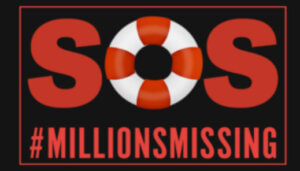We applaud the U.S. House of Representatives for its support to increase funding for the National Institutes of Health (NIH). Last week, the House Appropriations Committee released its draft funding bill that raises spending for the NIH by $1.25 billion (3 percent) to $38.3 billion in 2019.
Year-by-year, the NIH budget increases, and, year-by-year, the NIH fails to address the injustice of its meager funding into Myalgic Encephalomyelitis (ME), a disease that affects a high proportion of Americans – estimates range from 1 to 2.5 million people, and that is highly debilitating, leaving 75 percent unable to work and 25-29 percent housebound or bed-bound.
In the last two years, overall NIH funding increased by $5 billion. The NIH has no excuse for failing to invest into biomedical research for ME. The NIH has the resources to allocate a fair share to ME commensurate with the disease burden, which studies approximate at $190 to $250 million.
The NIH clearly has the ability to jumpstart research for diseases that are deemed a public health crisis. For example, the NIH just announced a $1.1 billion investment into funding for opioid misuse / addiction research – a doubling of the budget with the support of Congress.
The #MEAction community has issued a letter to director Francis Collins calling on him to implement a rigorous plan to achieve development of a diagnostic test, clinical trials and treatments for ME. The letter specifies mechanisms that the NIH must undertake within the next 12 months to reach our key goals.
The House Appropriations Committee draft funding bill includes funding for the research initiatives below, which is a key example of how Congress does allocate funding for specific diseases. (When discussing funding for ME with activists, Congress and the NIH will often argue that they don’t allocate funding for specific diseases, which is clearly untrue.)
- $2.25 billion, a $401 million increase, for Alzheimer’s disease research,
- $400 million, a $100 million increase, for the Cancer Moonshot research initiative,
- $429 million, a $29 million increase, for the Brain Research through Application of Innovative Neurotechnologies (BRAIN) initiative,
- $437 million, a $147 million increase, for the All of Us research initiative,
- $130 million, an increase of $30 million, for research to develop a universal influenza vaccine,
- $528 million, an increase of $15 million, for research on Combating Antibiotic-Resistant Bacteria,
- $366 million, an increase of $15 million, for Institutional Development Awards, and
- $12.6 million for the Gabriella Miller “Kids First” pediatric cancer research initiative.
The legislation expands support for research related to opioids and pain management, as well as for the Down syndrome research initiative established in fiscal year 2018.




